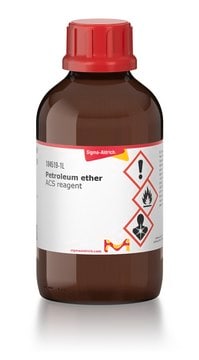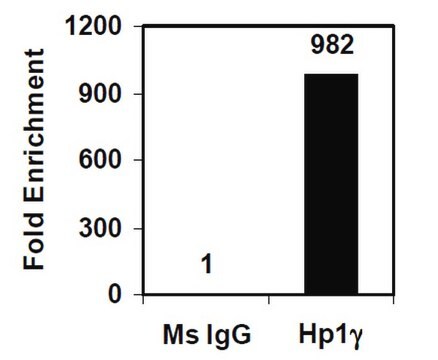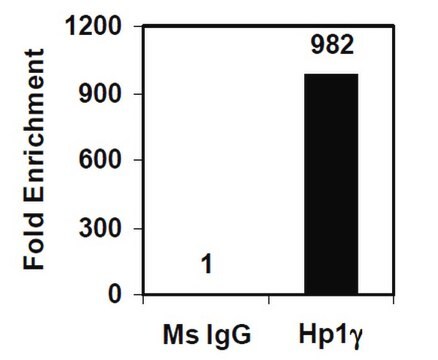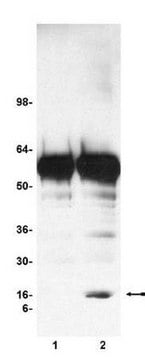319902
Ethyl acetate
ACS reagent, ≥99.5%
Synonym(s):
EtOAc
About This Item
Recommended Products
grade
ACS reagent
Quality Level
Agency
suitable for EPA ACB B21-02
suitable for EPA ACB B23-05b
vapor density
3 (20 °C, vs air)
vapor pressure
73 mmHg ( 20 °C)
Assay
≥99.5%
form
liquid
autoignition temp.
801 °F
expl. lim.
2.2-11.5 %, 38 °F
impurities
H2SO4, passes test (darkened)
≤0.0009 meq/g Titr. acid
≤0.200% water
evapn. residue
≤0.0030%
color
APHA: ≤10
refractive index
n20/D 1.3720 (lit.)
bp
76.5-77.5 °C (lit.)
mp
−84 °C (lit.)
density
0.902 g/mL at 25 °C (lit.)
format
neat
SMILES string
CCOC(C)=O
InChI
1S/C4H8O2/c1-3-6-4(2)5/h3H2,1-2H3
InChI key
XEKOWRVHYACXOJ-UHFFFAOYSA-N
Looking for similar products? Visit Product Comparison Guide
Related Categories
General description
Ethyl acetate ACS grade solvent used in:
- Routine chemical synthesis
- Drying & purification
- Critical labware cleaning
Application
related product
Signal Word
Danger
Hazard Statements
Precautionary Statements
Hazard Classifications
Eye Irrit. 2 - Flam. Liq. 2 - STOT SE 3
Target Organs
Central nervous system
Supplementary Hazards
Storage Class Code
3 - Flammable liquids
WGK
WGK 1
Flash Point(F)
24.8 °F - closed cup
Flash Point(C)
-4 °C - closed cup
Choose from one of the most recent versions:
Already Own This Product?
Find documentation for the products that you have recently purchased in the Document Library.
Customers Also Viewed
Our team of scientists has experience in all areas of research including Life Science, Material Science, Chemical Synthesis, Chromatography, Analytical and many others.
Contact Technical Service











